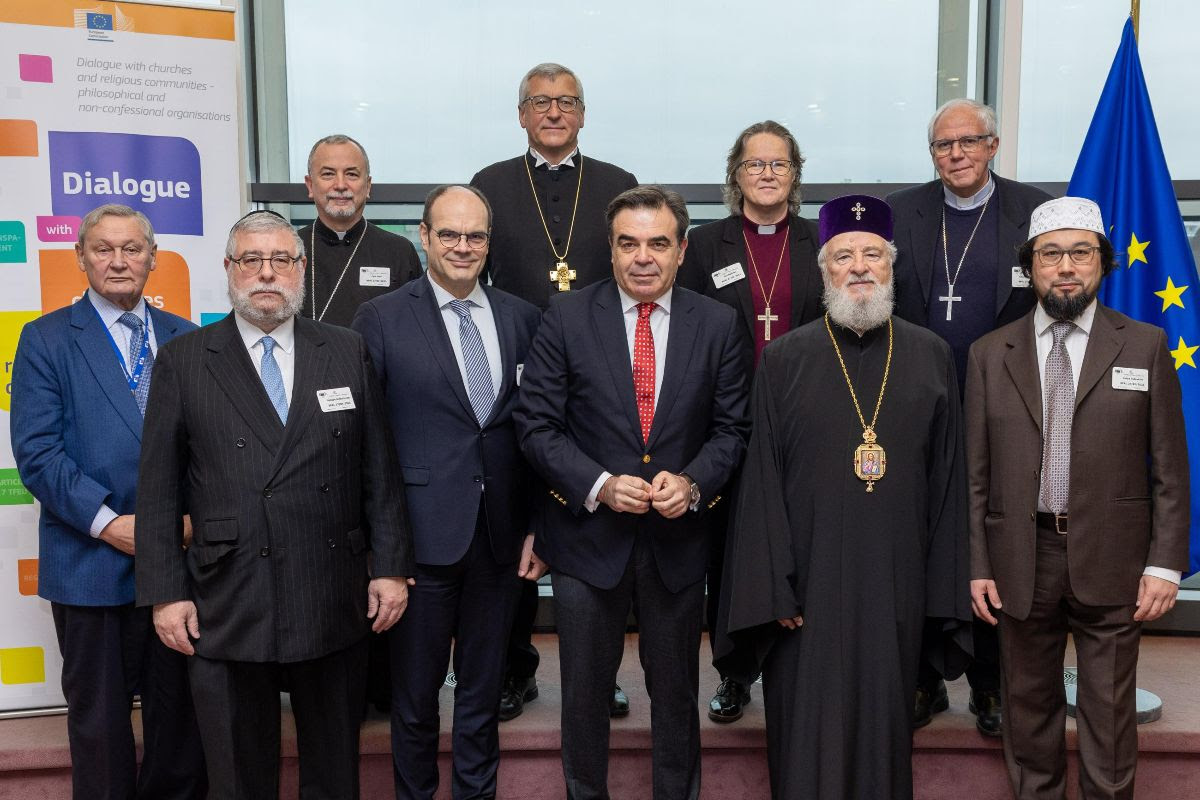Participants discussed how the war in Ukraine—and the response from the European Union—has been perceived in their countries. They also shared their concrete experiences with the reception of Ukrainian refugees, the energy crisis, and the impact on the most vulnerable segments of society. The World Council of Churches was represented by Metropolitan Prof. Dr Nifon of Targoviste, Romanian Orthodox church, member of the central committee and the executive committee. “We, as people of faith realize that the inhabitants of Ukraine are enduring an appalling toll of death, destruction, and displacement,” said Metropolitan Nifon. “Many millions of people have fled their homes, either as refugees in the whole of Europe or within Ukraine itself.” He expressed grave concern about any misuse of religious language to justify or support armed aggression, in sharp contrast to the Christian calling to be peacemakers. “We must continually condemn the war and appeal for peace for the people of Ukraine,” said Metropolitan Nifon. “Our God is a God of peace, not of war and bloodshed.” The Conference of European Churches (CEC) was represented by CEC president Rev. Christian Krieger and Bishop Åsa Nyström, Church of Sweden. Christian Krieger expressed his appreciation of the strong commitment and EU’s clear position in handling the situation created by the invasion of Ukraine, notably regarding the economic and military solidarity, the status for refugees and the sanctions. Krieger noted the paradigm shift the war has caused in Europe, creating a special moment for EU to confirm its values and address its internal challenges. “It is a time for Europe to assert and defend its values—values that reflect justice, truth, and pathways to peace,” he said, further addressing the impact of the war on inflation, social crises, and the heightened risk to democracies by populist discourse and radical parties. | 





No comments:
Post a Comment